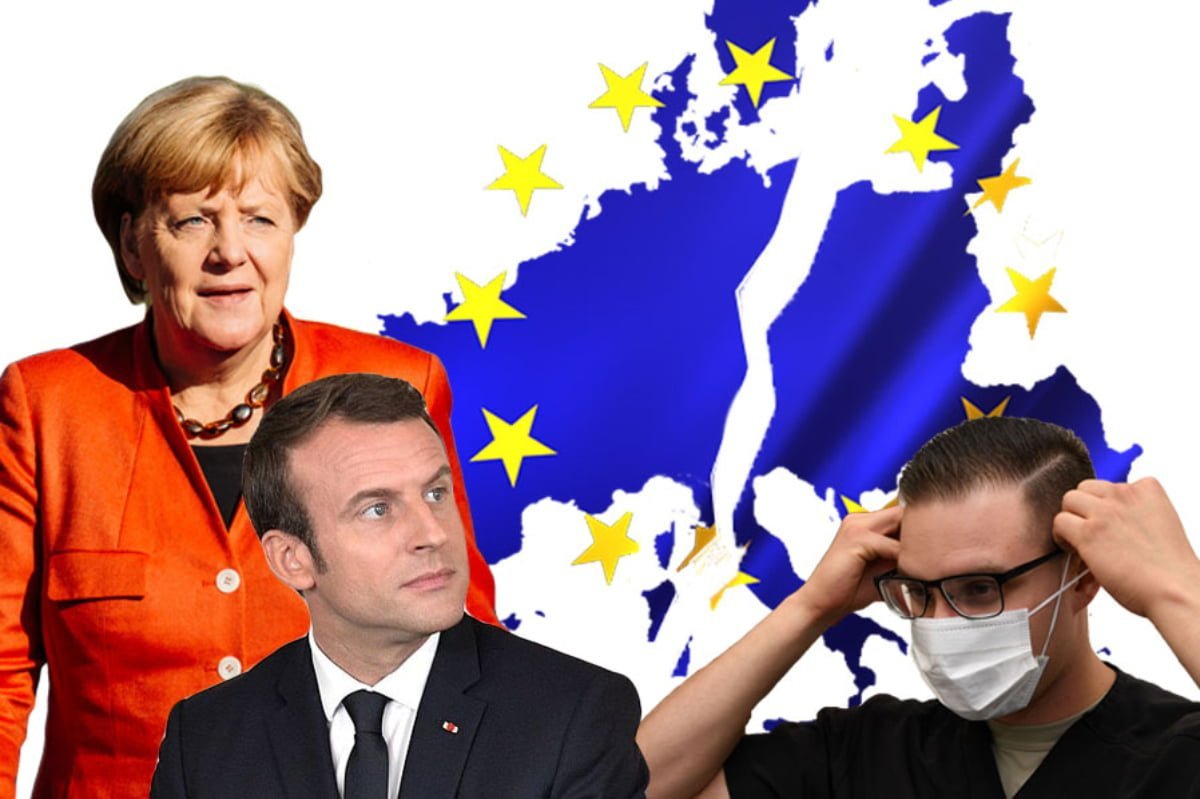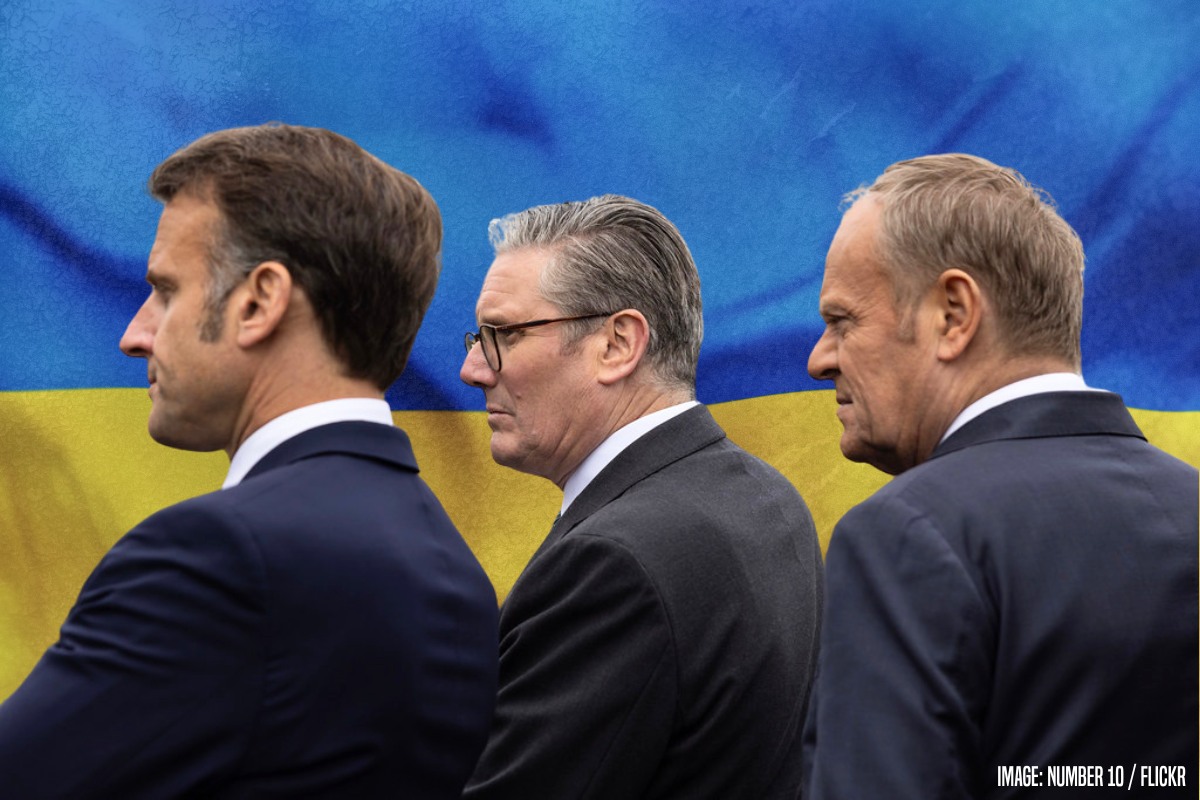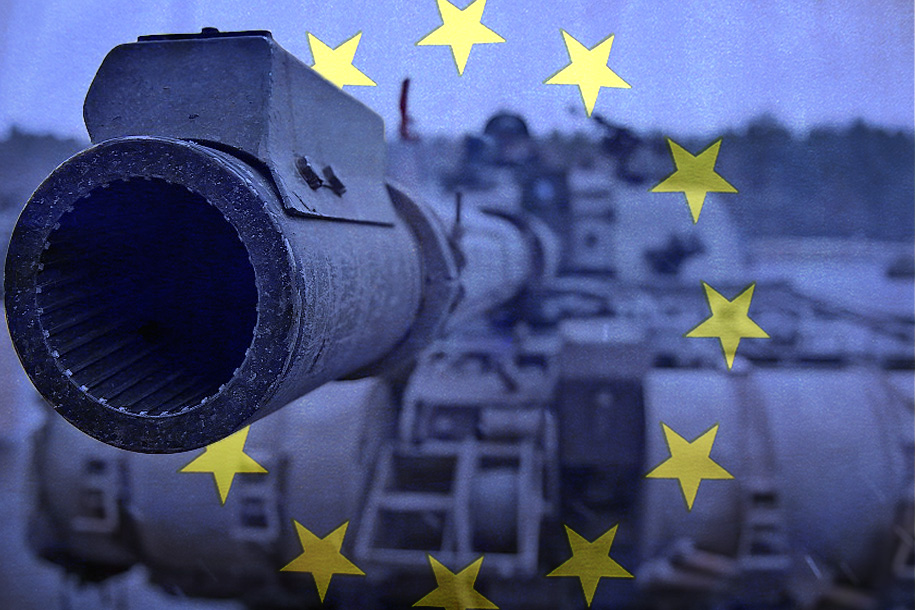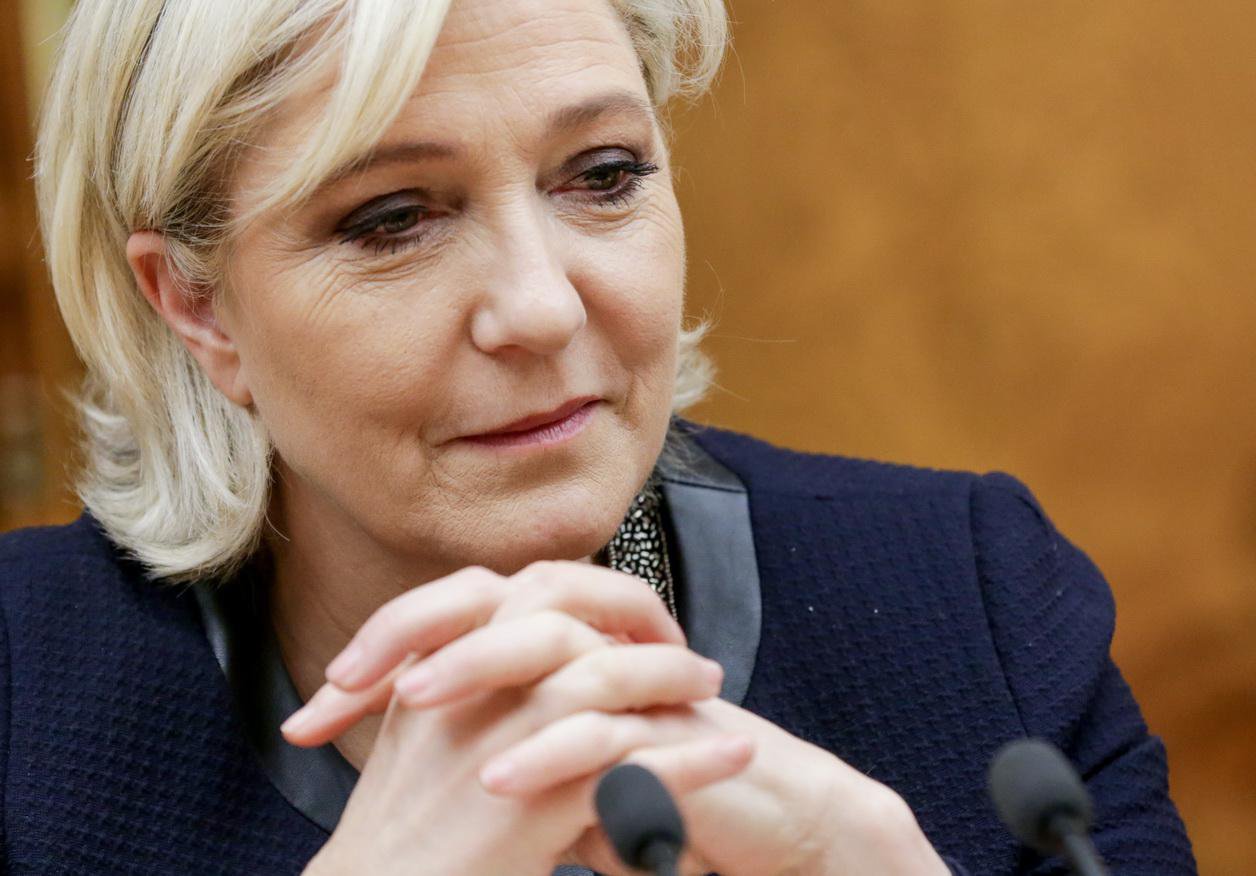Europe faces its greatest crisis since WWII as borders close across the region. The coming slump will exacerbate national tensions. We are witnessing a new phase in the unravelling of the union. Fight for a Socialist United States of Europe!
With the epicentre of the coronavirus pandemic shifting to Europe, the region now faces its most serious crisis since the Second World War. All of the pillars of so-called European integration are buckling under the pressure.
At precisely the time when international solidarity and coordination is needed most, European states are closing their borders and withholding aid, while the coming slump will raise the prospect of the break up not only of the euro, but of the European Union as we know it.
Closed borders
 Freedom of movement both into and within the European “Schengen” area has now been suspended, but not as the result of a coordinated intervention by the EU. Even before the European Commission closed the bloc’s external borders with the rest of the world on 17 March, many European governments had unilaterally decided to close their national borders, preventing entry even from fellow Schengen member states.
Freedom of movement both into and within the European “Schengen” area has now been suspended, but not as the result of a coordinated intervention by the EU. Even before the European Commission closed the bloc’s external borders with the rest of the world on 17 March, many European governments had unilaterally decided to close their national borders, preventing entry even from fellow Schengen member states.
As early as 13 March, the Czech Republic had announced it would close its borders, and at the time of writing 21 of the 26 Schengen member states have closed theirs, including Germany, Italy and France. This is completely unprecedented; even at the height of the 2015 migrant crisis, restrictions on travel within the Schengen area were sparse and very short-lived.
The gravity of this crisis, which has effectively abolished the free movement of people, has been downplayed as only a temporary, emergency measure, but it is worth recalling the words of Jean-Claude Juncker, who as European Commissioner announced in the midst of the migrant crisis:
“Less Schengen means less employment, less economic growth. Without Schengen, without the free movement of workers, without freedom of European citizens to travel, the euro makes no sense.”
No date has been fixed for the reopening of national borders and the European Commission has little say on the matter; it may only express its opinion on the measures taken by national governments. This means the fate of the free movement of people across Europe, and with it the euro and the single market, rests in the hands of 26 national governments, all scrambling to secure their own interests under constant pressure from nationalist and protectionist tendencies within their own borders.
Considering the projected length of the pandemic, and the horrific effects it is already beginning to have, the chances of a rapid and orderly transition back to the status quo ante seem vanishingly small. All that would be required is for a small group of hold outs to refuse to reintroduce full freedom of movement along with the rest of the bloc and Schengen would be no more. This alone would pose an existential threat to the EU.
Trade blocked
The free movement of people is not the only one of the famous “Four Freedoms”, which has come under threat since the arrival of the coronavirus. Perhaps even more significant has been the disruption of the free movement of goods. Several member states have placed restrictions on the export of medical supplies, with Germany even going so far as to block the export of medical face masks, prompting protests from other member states.
Free trade across borders is the economic foundation of the European Union. Without it there is no single market. That the most powerful economy in Europe would take such obvious steps to curtail it is a graphic indication of the depth of this crisis. It will also lead to further protectionist measures throughout the trade bloc in future as smaller states seek to protect their own interests.
One could query whether there even is a European Union anymore, considering its fundamental principles have effectively been abolished, but that would miss a vital part of the EU’s nature. In reality, the EU is not its rules, which can be and are bent and broken by the major players at will. Nor is it even its institutions. Ultimately, the EU is simply an agreement between the powers of Europe that some form of union best serves their interests. But faced with a crisis of this scale and intensity this agreement has already begun to fray to a dangerous degree.
Solidarity
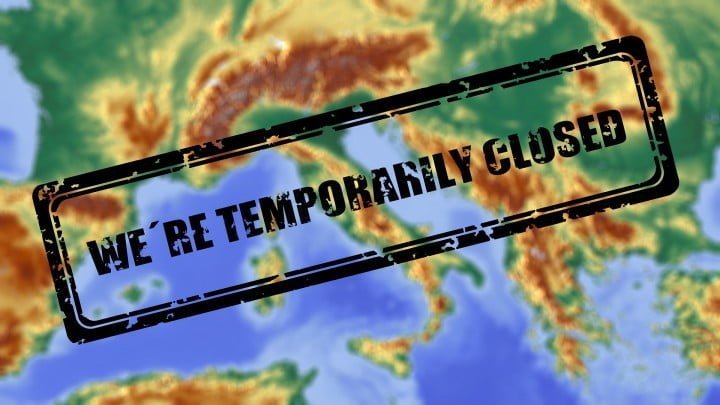 The growing conflict within the EU has struck panic into the more far-sighted representatives of European capitalism, raising a chorus of calls for “unity” and “solidarity” across the bloc. The Financial Times’ editorial board even published a statement, which pleaded with European leaders to “speak and act with one voice”, explaining, “without co-operation and burden-sharing, the principles of an ever-closer union are meaningless.”
The growing conflict within the EU has struck panic into the more far-sighted representatives of European capitalism, raising a chorus of calls for “unity” and “solidarity” across the bloc. The Financial Times’ editorial board even published a statement, which pleaded with European leaders to “speak and act with one voice”, explaining, “without co-operation and burden-sharing, the principles of an ever-closer union are meaningless.”
But it seems that, not for the first time, in a crisis, European “solidarity” is in even more short supply than ventilators and medical face masks, as the people of Italy have recently discovered. Thus far, Italy has been worst affected by the coronavirus, with over 5,000 confirmed dead from the disease so far. Struggling to maintain an overwhelmed health service, the Italian authorities appealed to the rest of the EU for medical equipment as early as February. Not a single European country answered the call. Who needs enemies with friends like these?
In the end, it was not Germany or France but China that came to the rescue, sending an aircraft full of medical experts and 31 tons of supplies, including protective equipment – the very thing the German state had been holding at the border. That China is able to intervene in this way demonstrates not only the ignominious decline of European capitalism, but also the growing split in the union between the wealthier Northern states and countries like Italy, which is shifting closer and closer to China.
Italy is not the only European country that is looking to China in this crisis either. The Serbian President, whose country has been negotiating entry into the EU since 2009, recently came out with an astonishing announcement, condemning Europe for refusing to export medical supplies and declaring: “European solidarity does not exist. That was a fairy tale on paper. I have sent a special letter to the only ones who can help, and that is China”.
This is only the beginning of the crisis. As the dire situation in Italy is replicated across the continent, the centrifugal forces at the heart of the European project will pull towards a split. Even now, it cannot be completely ruled out that, under the extreme pressure of events, the EU could fracture, but the rulers of Europe, in particular the French and German capitalists, will go to great lengths to prevent that from happening. What they cannot prevent however is the coming slump, which will drag down the European economy and the euro with it.
Economic crisis
As the virus has spread, global economic activity has ground to a halt. Supply chains have been disrupted and demand has collapsed as more and more countries are taking social distancing measures to combat the virus.
Europe is being dragged into a deep recession. This month’s European Purchasing Managers’ Index (PMI), which charts market conditions, fell to its lowest level since it was introduced in 1998. Goldman Sachs has estimated that the region’s economy will shrink by a staggering 11 percent in the next quarter.
Faced with economic collapse, states have rolled out enormous Keynesian stimulus packages, hoping to at least alleviate the worst effects of the crisis. France has announced a €45bn “rescue package”, whilst Italy plans to increase its spending by €25bn. Even the usually ultra-thrifty German government has announced €150bn in new borrowing to try and combat the crisis.
The combination of rapid increases in public spending with falls in GDP and tax receipts will have a huge impact on the finances of already debt-laden states. One estimate from Capital Economics predicts that budget deficits will rise by 10-15 per cent across the region, raising fears of a repeat of the Eurozone’s 2009 sovereign debt crisis, which almost saw the departure of Greece from the euro.
This time, however, at the centre of the crisis is not Greece but Italy, the third-largest economy in the Eurozone and a founding member of the EU. Italian bond yields had begun to rise in early March. If left unchecked, this could have made it so expensive for Italy to borrow money that it would have been unable to maintain its existing €2.06 trillion debt, let alone borrow more.
With this disastrous prospect in mind, the European Central Bank announced a €750 billion “bazooka” programme of bond buying, designed to lower the cost of borrowing for struggling member states and stabilise the common currency. The president of the ECB, Christine Lagarde, in a dramatic reversal of her previously hawkish position, announced there was “no limit to our commitment to the euro. But no amount of ECB stimulus, however limitless it may seem, will be enough to save the euro from the coming crisis.
Further attacks
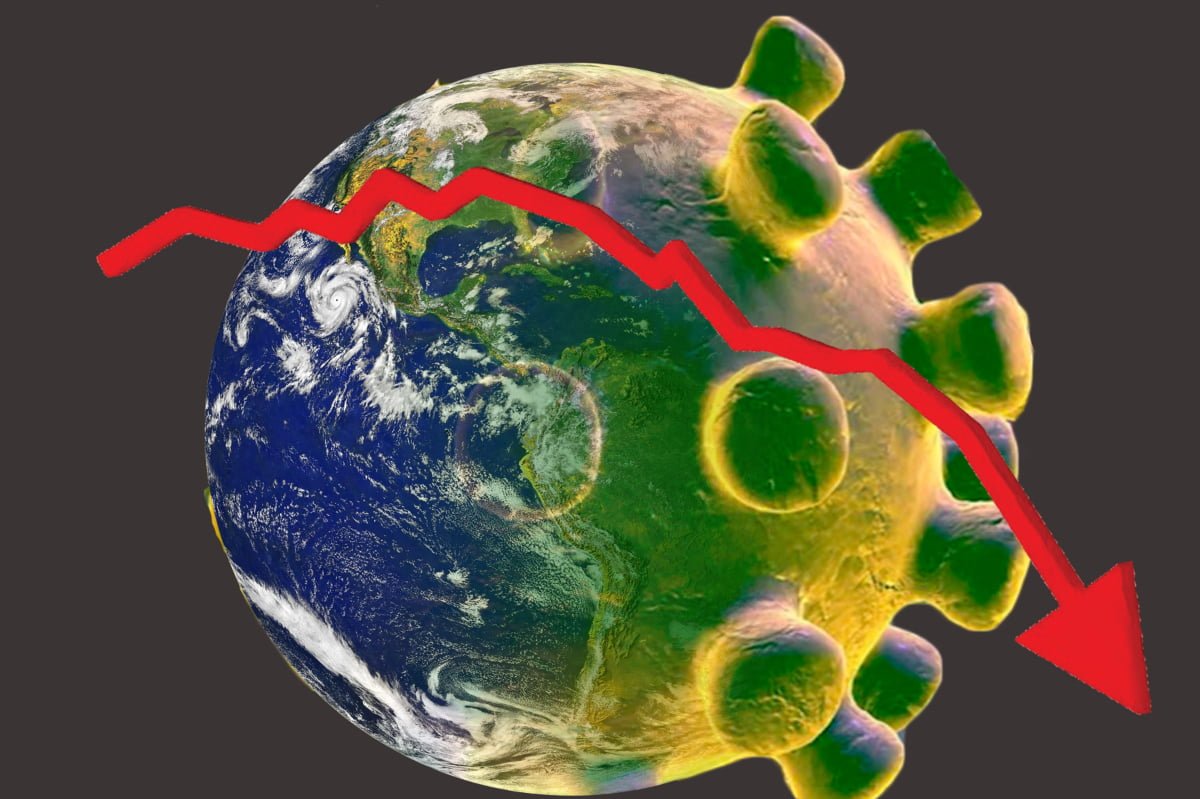 Not one of the deep problems exposed by the crisis of 2009 has been solved after almost a decade of “recovery”. In fact, most European states are burdened with even more debt than ever. In 2009, Italian public debt was 116.6 per cent of GDP; in 2018 it was 134.8 per cent. It is estimated that this crisis could add a further 20 to 50 points to Italy’s debt-to-GDP ratio, which would bring it to Greek levels of unsustainability.
Not one of the deep problems exposed by the crisis of 2009 has been solved after almost a decade of “recovery”. In fact, most European states are burdened with even more debt than ever. In 2009, Italian public debt was 116.6 per cent of GDP; in 2018 it was 134.8 per cent. It is estimated that this crisis could add a further 20 to 50 points to Italy’s debt-to-GDP ratio, which would bring it to Greek levels of unsustainability.
And that is only public debt. Corporate debt has soared since 2009 as companies have become hooked on the cheap credit used to pull the Eurozone out of the last crisis. Ultimately, buying more debt, which is all the ECB’s programme really amounts to, can at best only postpone an even deeper crisis, not prevent one altogether.
Further, the coming world recession will likely hit Europe even harder than in 2008/09. Germany, by far the strongest economy in Europe, emerged relatively unscathed from the last crisis, helped by its powerful export economy. Now that strength has been transformed into its opposite, with manufacturing plummeting months before the coronavirus outbreak even began.
In the midst of its deepest crisis since the Second World War, the hard-nosed German ruling class will be unwilling to bankroll a limitless extension of cheap credit to weaker southern economies. Just as in 2009, German and other northern capitalists will bemoan having to pay the debts of “lazy” Italians, Greeks, Portuguese etc. In fact, this hateful chorus will be even louder now, with the German Christian Democrats in crisis and under pressure from the nationalist AfD.
Like every other European institution, the Eurozone has now effectively suspended its own rules, allowing “maximum flexibility” within its budget rules for member states to respond to the coronavirus. But this is only a temporary measure. At a certain stage, not very far away, the Italian workers will be expected to pay for the dubious ‘generosity’ shown them by the bankers during this crisis.
In order to bring its budget deficit to the required 3 per cent the Italian government will have to carry out further cuts to public services and attacks on working conditions while the population is left reeling from the coronavirus. The result will be a social and political crisis which could spell the end for the euro.
An Italian poll, taken on 12-13 March, reported that more than two thirds of Italians now think belonging to the EU is “disadvantageous”, up from 47 percent in November 2018. If, having been abandoned in their hour of need, Italian workers are then forced to foot the bill for the crisis, “Itexit” will become almost unavoidable. This would spell the end of the EU as we know it.
For a socialist Europe
The fact that all of these crises are taking place at exactly the same time is not simply an accidental by-product of coronavirus. Taken as a whole, this crisis is exposing the mass of contradictions implicit in the European project. What we are witnessing is a new, acute phase in the unravelling of the EU, which has been prepared for over many years.
Contrary to the prejudice of the liberals, the unification of Europe on a capitalist basis is neither possible nor progressive. In times of crisis, it is inevitable that each capitalist nation state will seek to protect its own interests at the expense of everyone else. Today, we see this in the complete farce of European “unity” in the face of a humanitarian and economic crisis that will cost hundreds of thousands of lives and destroy millions of livelihoods.
The future of humanity demands that we find an alternative to this nightmare. The resources and technology of Europe could be instantly mobilised to address the health crisis and provide for its people and the rest of the world, if production and distribution were planned on a rational and democratic basis. But under capitalism, this is impossible even in a single nation, and unthinkable on an international scale.
Under the rule of the bankers Europe has been brought to ruin. Now is the time for a Socialist United States of Europe.

